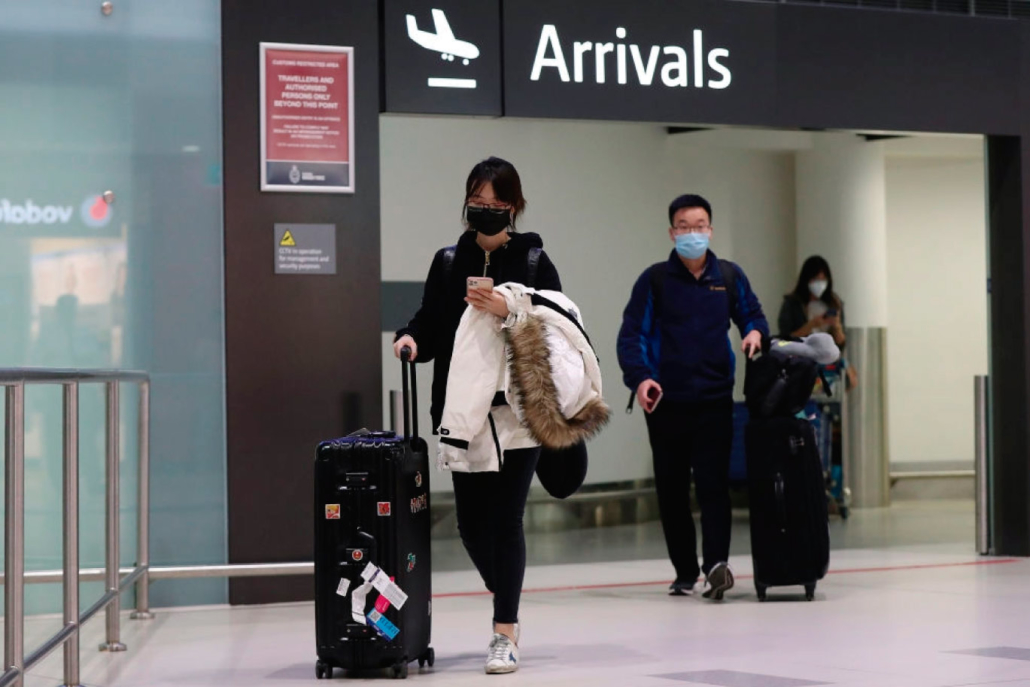In the coronavirus’s midst crisis, it is best to stay home and not leave, much less make long trips that require taking a plane, unless it is strictly necessary. In case of being in the need to leave home or take a trip, the most important thing will be to take care of personal hygiene.
And although many airlines, such as Delta Air Lines and American Airlines, ensure that the cleanliness and hygiene of their planes is a priority and they do it thoroughly after each flight; We know that the seats and other surfaces of the plane are public spaces in which germs can survive for a few hours, so it does not hurt to do our part and ensure that we stay out of the reach of any virus or disease.
Today at Jet Man Pay we present you some recommendations that may serve you when taking a future flight:
- The first thing you should know is that you should always have your hands clean. This will be the first step to maintain good hygiene and stay away from any contagion.
- Cleaning the surfaces of an airplane never hurts to maintain hygiene during your stay. When you get to your seat and your hands are clean, use sanitizing wipes to clean the armrests, headboard, seat belt buckle, screen, folding table, and any other hard surfaces around you. Even if the seat is hard and non-porous, you can clean it too. It is important that you do not use the wet wipes on cloth-upholstered seats, as moistening the seat can cause germs to spread rather than kill them.
- Recall that viral particles remain in metal, glass, and plastic objects for hours, even days. Therefore maintaining hygiene and applying disinfectant on these surfaces and washing your hands will keep you away from the virus.
- Avoid touching your face. You probably haven’t noticed, but you touch your face often, and doing so after touching a surface where there may be droplets of saliva from someone who sneezed or coughed can cause the virus to spread. Do not forget that viral particles, especially those of the coronavirus, travel through the mucosa or saliva, and enter through the eyes, nose and mouth.
- Reserve a window seat. An Emory University study found that the safest place to sit on a plane during the flu season is the window seat. Some researchers studied some passengers and crew members on ten flights lasting three to five hours and found that people sitting by the window had less contact with possibly ill people.
- Don’t drink tap water. Although it is important to stay hydrated during long trips, it is recommended to drink drinking water, since the tap water of airplanes is stored in tanks that can contain bacteria and parasites.
But we don’t want to scare you! The risk of getting a serious virus infection on an airplane is quite low. Many believe that there is a greater chance of getting sick on an airplane because “stagnant” air is breathed there, but the truth is that the air from an airplane can be of better quality than in an average office, a train, a cinema or a bus.
The air we breathe on airplanes is a combination of fresh air and recirculated air, roughly by halves. The recirculated air passes through filters of the same type that are used in operating rooms, guaranteeing that the air supplied will be 99.97% free of viruses and other particles; while other traditional air conditioning systems only recirculate the same air to save energy.
Quingyan Chen, a professor at Purdue University in the United States, investigates the air quality in different passenger vehicles, and estimates that the air in an airplane is completely changed every 2-3 minutes, compared to that of a building with air conditioning where it changes every 10-12 minutes.
In other words, if there is a virus on the plane, it does not come from the air, but from someone, so it is important to follow the general recommendations: wash your hands, clean surfaces and try to sneeze or cough in a disposable tissue.




Leave a Reply
Want to join the discussion?Feel free to contribute!